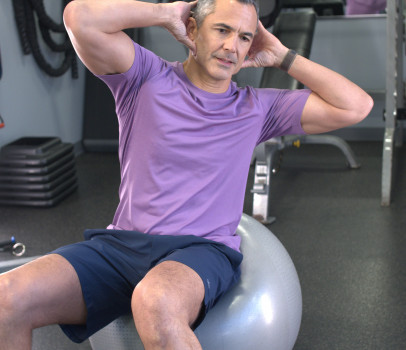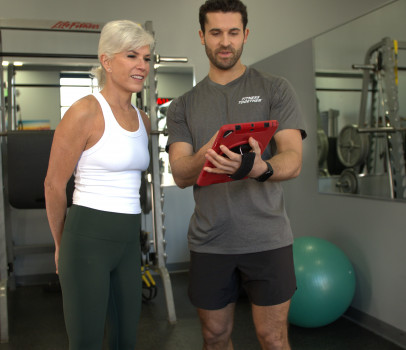Page 1 of 8 Next

You're Busy — and That's Why Personal Training Makes Sense.
Sep 17, 2025
You're Busy — and That's Why Personal Training Makes Sense. You're busy, life is packed with endless to-do lists. Between work, family, errands, and personal commitments, it often feels like there just aren’t enough hours in the day. And when schedules get tight, workouts are usually the first thing to drop off the calendar. Yet, physical health is...

Your First Personal Training Session: What to expect
Jul 17, 2025
Your First Personal Training Session: What to Expect There’s no need to feel nervous before working with a personal trainer, but it’s totally normal to feel this way. Beginning a fitness journey can be an exciting — and vulnerable — time. It can feel nerve-wracking to reach out for help, even though you’re pumped about putting in the work to...

Smoothie Bowls
Jul 1, 2025
These smoothie bowls have to be my new fav obsession, great for anytime of day, either as a meal or you can make a smaller version as a snack or dessert. The topping selections are endless and can really be turned into a filling meal. Below is my go-to version: Ingredients Smoothie base: 1 package frozen acai ½ c mixed frozen berries 1...
Mobility Flow with Instructions
Jun 3, 2025
Mobility Flow The sun is FINALLY out here in CT. We’ve talked about taking your workout outdoors recently so why not drag your yoga mat out onto the deck and go through this little stretch routine after being at a desk inside all day. It’ll feel great to move your body and get some sun. Extra points if you follow it with a walk! Cat Cow Stretches - Start on your...

Greek Chicken Power Bowl
Jun 2, 2025
This Greek bowl is full of goodness. From the delicious marinated grilled chicken to the chopped up fresh veggies, it’s a great weekday option for a warm summer night where being over a hot stove isn’t what you want to do after a long workday. It comes together quickly and can even be consumed cold as leftovers the next day. Ingredients: 1lb...

Extreme Morning Routines: What Works, What Doesn’t.
May 15, 2025
While the morning routines of some content creators are impressive, you don’t necessarily need to go to David-Goggins-style extremes to reap the benefits of a great morning routine. Here, we’ll take a look at some of the most popular social media morning routine staples to help you decide how to fill your precious morning hours

Walking - An Underrated Form of Exercise
May 6, 2025
Why Walking Is the Most Underrated Form of Exercise In a culture obsessed with high-intensity workouts, smart gyms, and fitness apps promising rapid transformations, walking has quietly remained in the background—simple, accessible, and often overlooked. But make no mistake: walking is one of the most powerful and underrated forms of exercise we have. 1....

Sheet Pan Fajitas
May 6, 2025
Sheet Pan Fajitas Looking to mix things up for your Taco Tuesday? Try this easy-to-make Sheet Pan Fajitas Recipe! It comes together in 30 minutes and can be packed up for leftovers the next day. Ingredients: 2lbs chicken breasts or thighs (boneless), sliced into 1in-wide strips 1 each of green and red peppers, sliced into strips 1 large yellow onion,...

The Power of Being Honest With Your Personal Trainer
Apr 28, 2025
The bottom line: even when it’s tough to be up-front with your personal trainer about your struggles, they can only do their best work if they know what’s going on during the time you’re not in the studio with them. Fitness Together® studios offer a non-judgemental, supportive environment that’s perfect for beginners and experienced exercisers alike.

Southwest Stuffed Spaghetti Squash
Apr 1, 2025
Ingredients: 1 lb lean ground beef or ground turkey 1 (3-4lb) spaghetti squash 1 can drained black beans 1 can fire roasted tomatoes with chilis 1 red pepper, chopped 1 yellow onion, chopped ¼ cup cilantro, minced 1 cup corn, frozen 2 tsp chili powder, 2 tsp smoked paprika, 1 tsp cumin Shredded pepper jack for topping Salt...
Page 1 of 8 Next
